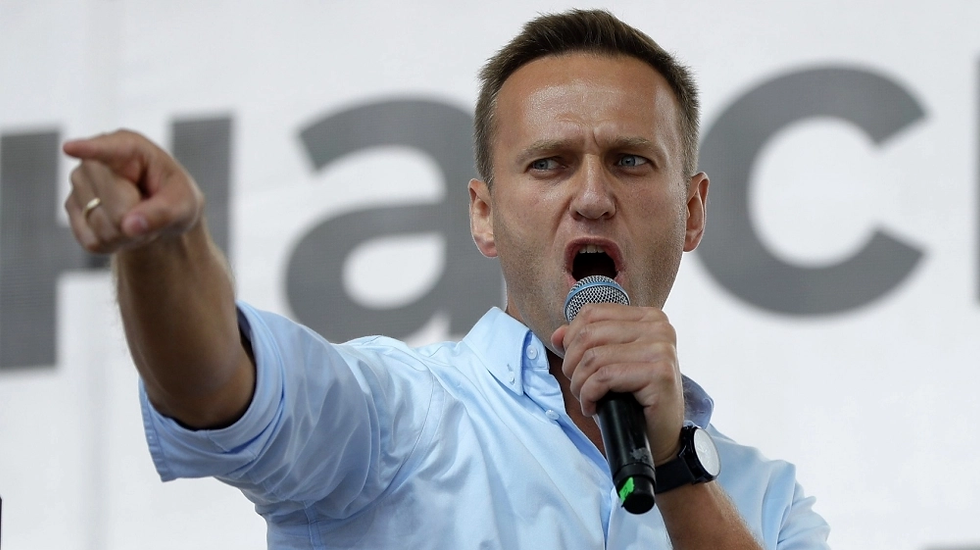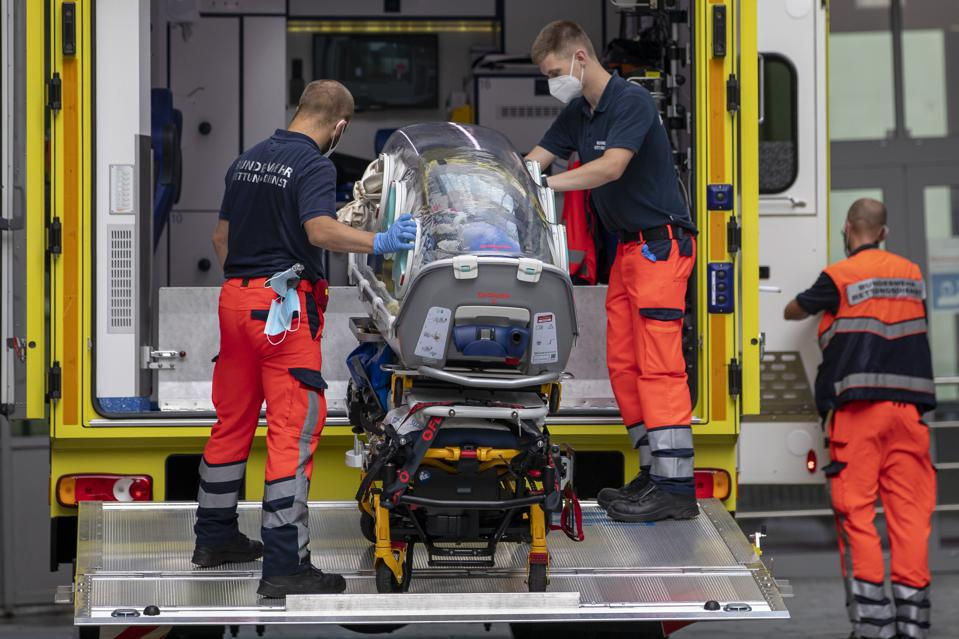
What happened?
On 20th August, 2020; Alexei Navalny, the Russian Opposition leader fell violently ill on his flight back home from Tomsk. The plane carrying him made an emergency landing in the city of Omsk, where he was transferred to the No.1 Clinical Hospital. Initially, the doctors at the hospital attributed the illness to low blood sugar levels, but a few days later when he was shifted to a hospital in Germany it was deduced that he had been poisoned with the help of Novichok, a deadly nerve agent.

This discovery led to suspicions of involvement of the State in the incident because a nerve agent is a banned substance and it is not available to the common masses. What adds more fuel to the fire is that there have been similar cases in the past against Navalny, suggesting a larger conspiracy at play here. In 2017, an unidentified assailant threw a green chemical liquid in his face, rendering him blind in one eye. These attempts aimed at threatening and discouraging him, have now escalated to attempts on his life.
Why was he poisoned?
Being the best known and most popular of Mr. Putin’s political opponents, there are a plethora of reasons as to what might have been the motive behind the alleged state sanctioned poisoning of Navalny:
Emergence of a new political system: There is a new political system being pedestaled by the government, one in which there seems to be no place for an opposition, and by default, Navalny. Constitutional amendments of such a nature would allow Putin to remain president for life.
Fear of an uprising: The Russian population has been harboring resentment and discontent against a government that is only interested in satiating its thirst for power and refuses to pay attention to what is ailing the masses. The government fears that, he has the potential to lead an uprising against the ruling class similar to the ones currently taking place in Belarus and the Far Eastern Russian city of Khabarovsk, something that could shake the very foundations of the whole system.
Successfully exposed Corruption: Navalny has managed to expose the large scale corruption that the government and the state officials indulge in, most notably the numerous properties of former Prime Minister, Dmitry Medvedev, which is in contrast to the general public who has to accept a largely mediocre standard of living.
Too Dangerous: Navalny has immense political clout. For the people he has emerged as someone with strong leadership skills having charismatic personality, ability to rally people behind him coupled with his absolute fearlessness of the system. All this makes him a likely candidate of exposing the fragilities of a highly dishonest system.
The Government's Response
The use of a nerve agent has gone a long way in corroborating the Russian government’s role in the incident, as nerve agents are only accessible to military and state officials. But the Kremlin has explicitly denied its involvement in the poisoning. The State has refused to open an investigation of the case, saying that there is no evidence of a crime being committed.
There have been calls questioning the delay in investigation but the government went on to claim of “there being no evidence of intentional criminal actions” and “no potent or narcotic substances being found”. The law enforcement agencies have rarely tried to delve deeper into incidents, clearly emphasizing the control of government over all areas life in the country
Implications
As there continues to be flagrant stonewalling on the part of Kremlin, the surest sign of anger would be the cancellation of the Nord Stream 2- a gas conduit between Germany and Russia, as it would mean heavy losses to the country. The West could resort to measures such as invoking the Chemical and Biological Weapons Elimination Act or the Magnitsky Act to impose financial sanctions, giving vent to the growing feelings of unrest and frustration it has been harboring for the longest time. Or it could even resort to expelling diplomats, just as it has done in the past.
Surprisingly, the United States, giving a glimpse of its friendly but peculiar relationship with Russia has made subtle attempts to ignore this transgression, mainly due to Trump’s cognitive dissonance. France has pledged to provide all the support it can in terms of resources to help Navalny, terming the act blasphemous at the least. There have been consistent calls for a proper investigation, with German Foreign Minister Heiko Mass saying that it would be impossible for Moscow to dismiss the accusations without it.
Sovereign States from all quarters came out to criticize Russia and implied it is imperative to hold the perpetrators accountable because a State prepared to eliminate its own citizens just because they have contrasting opinions is a threat to the basic principles of freedom-principles on which the modern society functions.
Sources:
New York Times
The Wall Street Journal
Centre for Strategic and International Studies
~Meghna Singh

Comments